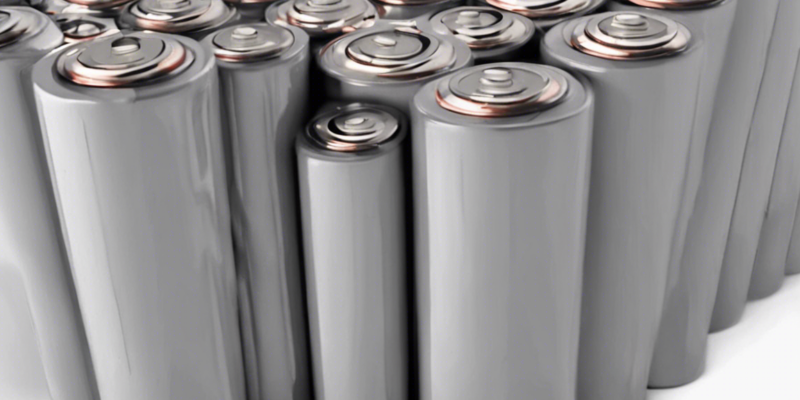Lithium-ion batteries have revolutionized the way we power our devices and vehicles, making them lighter, more efficient, and longer-lasting than traditional alternatives. The demand for these batteries continues to grow as we move towards a more electrified and sustainable future. However, there are still challenges to overcome in order to unlock the full potential of lithium battery technology.
The Current State of Lithium Battery Technology
Lithium-ion batteries are currently the best option for portable electronics, electric vehicles, and grid energy storage due to their high energy density, long cycle life, and fast charging capabilities. These batteries consist of an anode, cathode, separator, electrolyte, and current collectors. During charging, lithium ions move from the positive electrode to the negative electrode, and during discharging, they move back.
Recent Innovations in Lithium Battery Technology
Researchers and companies are constantly working on improving lithium battery technology to make them safer, more efficient, and cheaper. Some recent innovations include:
-
Solid-State Batteries: These batteries replace the liquid electrolyte with a solid material, which reduces the risk of leakage, improves energy density, and increases safety.
-
Silicon Anodes: Silicon has a much higher energy density than graphite, which is commonly used in current lithium-ion batteries. By incorporating silicon anodes, battery capacity can be significantly increased.
-
Lithium-Sulfur Batteries: Lithium-sulfur batteries have the potential to store much more energy than lithium-ion batteries, making them ideal for electric vehicles and renewable energy storage.
-
Sodium-Ion Batteries: Sodium is more abundant and less expensive than lithium, making sodium-ion batteries a more sustainable option for large-scale energy storage applications.
Challenges and Opportunities in Lithium Battery Technology
While lithium-ion batteries have come a long way, there are still challenges that need to be addressed:
-
Safety Concerns: The flammability of lithium-ion batteries has led to safety issues, such as explosions and fires. Developing safer battery chemistries and improving thermal management systems are crucial.
-
Cost: The high cost of lithium-ion batteries can be a barrier to widespread adoption. Finding ways to reduce production costs through economies of scale and improved manufacturing processes is essential.
-
Resource Availability: The limited availability of lithium and other key materials could constrain the growth of the battery industry. Recycling and developing alternative chemistries using more abundant materials are potential solutions.
The Future of Lithium Battery Technology
Despite these challenges, the future looks promising for lithium battery technology. With ongoing research and development, we can expect to see the following advancements:
-
Higher Energy Density: Increasing the energy density of batteries will enable longer driving ranges for electric vehicles and greater energy storage capacity for renewable energy systems.
-
Faster Charging: Developing batteries that can be charged more quickly will make electric vehicles more convenient and reduce downtime for electronic devices.
-
Longer Cycle Life: Improving the longevity of batteries will reduce the frequency of replacements and enhance overall sustainability.
-
Integration with Renewable Energy: Combining lithium batteries with solar and wind power systems will enable greater energy independence and resilience.
In conclusion, lithium battery technology is continuously evolving, driven by the need for more sustainable energy solutions. By overcoming current challenges and capitalizing on new opportunities, we can expect to see even more efficient, powerful, and affordable lithium batteries in the near future.
FAQs
- Are lithium-ion batteries recyclable?
Yes, lithium-ion batteries are recyclable. Recycling helps recover valuable materials like lithium, cobalt, and nickel, reducing the need for raw materials and minimizing waste.
- What is the lifespan of a lithium-ion battery?
The lifespan of a lithium-ion battery is typically around 500 to 1000 charge cycles, depending on usage patterns and environmental conditions.
- Can lithium batteries catch fire?
In rare cases, lithium batteries can catch fire due to overheating or damage. Implementing safety mechanisms and proper handling can minimize the risk of fires.
- How do solid-state batteries differ from traditional lithium-ion batteries?
Solid-state batteries use a solid electrolyte instead of a liquid electrolyte, offering improved safety, energy density, and longevity compared to traditional lithium-ion batteries.
- What are the main advantages of lithium-sulfur batteries?
Lithium-sulfur batteries have a higher theoretical energy density than lithium-ion batteries, making them attractive for applications requiring increased energy storage capacity.


